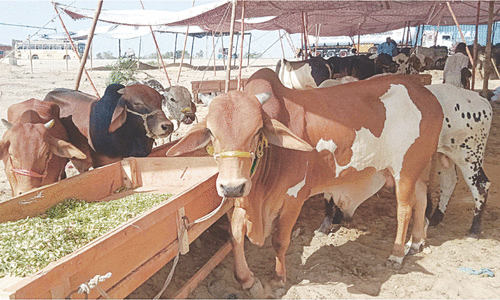PESHAWAR: The opposition parties have yet to devise a strategy to deal with the looming dissolution of the Khyber Pakhtunkhwa Assembly.
Chairman of the Pakistan Tehreek-i-Insaf (PTI) Imran Khan had announced on Saturday that both KP and Punjab assemblies, where his party and allies had majority of seats, would be dissolved on Dec 23 to push the federal government for holding early elections in the country.
MPA of the opposition Pakistan Peoples Party MPA Ahmad Kundi told Dawn that some senior party leaders asked him about the dissolution issue.
“I told them [party leaders] not to counter it and let it [assembly] be dissolved,” he said.
The lawmaker said the chief minister was empowered to wrap up the assembly.
ANP leader says resolution for no-trust against CM not discussed yet
“This is the chief minister’s prerogative and he can take a decision, but in my personal opinion, we should let him go for it [dissolving the assembly],” he said.
Mr Kundi said he had shared that opinion with the party leadership but it was the party’s leadership to decide about it and the future course of action.
Parliamentary leader of the opposition Awami National Party Sardar Hussain Babak told Dawn that his party had yet not discussed the resolution for vote of no-confidence against the chief minister.
“We have not discussed it [no-trust resolution] at party level but will hold a meeting of members from opposition benches,” he said.
Also, the Jamaat-i-Islami, which is not part of the Pakistan Democratic Movement but its members sit on the opposition benches, has yet to take a decision on the matter.
Jamaat MPA Inayatullah, who won the 2018 election as a nominee of the Muttahida Majlis-i-Amal, told Dawn that his party was waiting for the PDM’s decision.
He said both PTI and PDM were “at loggerheads” only to serve own interests and all that had nothing to do with the country and its interests.
“Look, this [assembly dissolution issue] is between the ruling PTI and the opposition PDM, and since we are not part of the PDM, we will decide about what to do following a decision by the PDM,” he said.
Mr Inayatullah said the current political uncertainty was caused by a “war of interests” between the PTI and the PDM.
When contracted, labour and culture minister Shaukat Yousafzai said the PTI didn’t fear the assembly’s dissolution as it was ready to face people in elections.
“If they [opposition] do it [move the no-trust motion against CM], they will do it to protect themselves and not us [PTI] since we have already decided to leave the government and are no more interested in it,” he said.
The minister said the PDM used to take to the streets over price hike but were silent on it after forming the government in the centre.
“We can face the people [in elections] but the PDM cannot,” he claimed.
A similar situation developed eight years ago when members of the opposition parties submitted a motion for no-confidence vote against the then chief minister, Pervez Khattak, in August 2014 to stop him from dissolving the assembly. However, the motion was withdrawn afterwards.
Published in Dawn, December 19th, 2022













































Dear visitor, the comments section is undergoing an overhaul and will return soon.